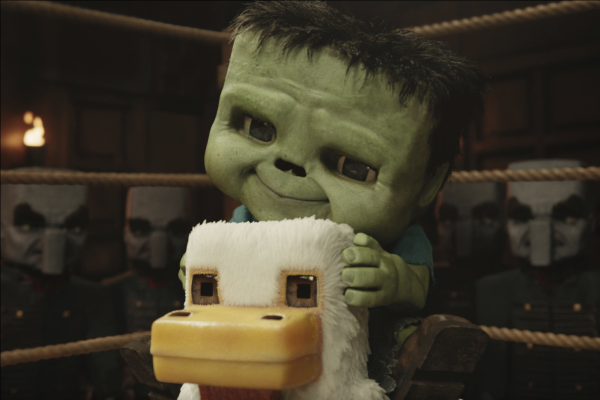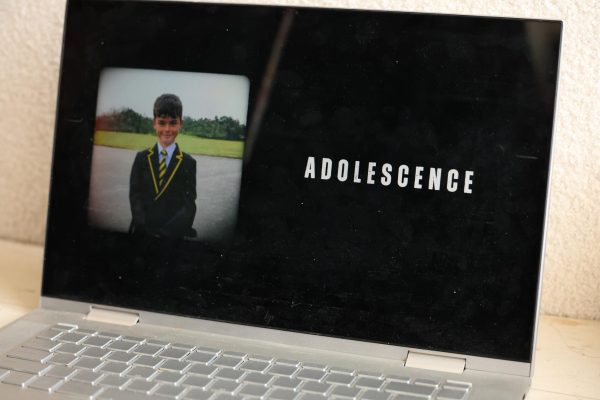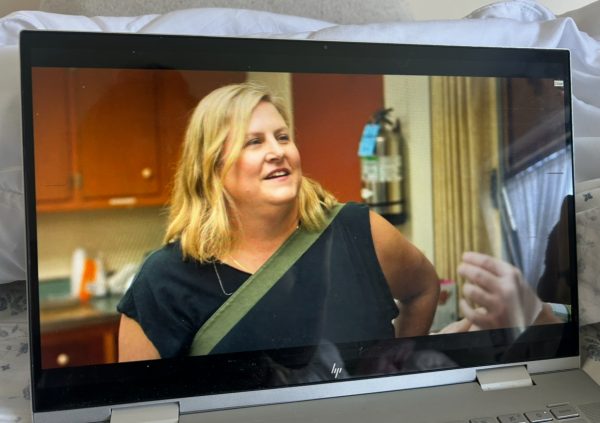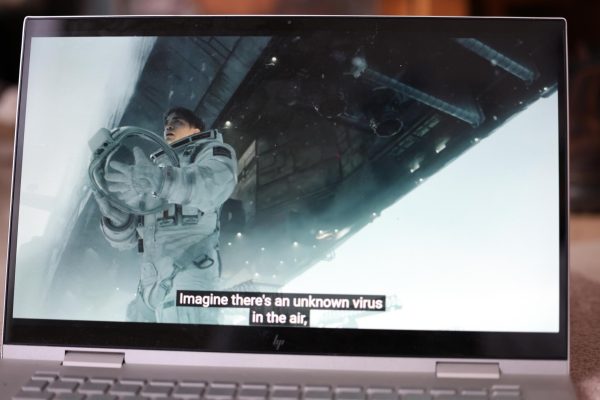“Dating & New York” Fails to Convey its Message About Online Dating Culture

Dating & New York employs many rom com tropes to convey a message about online dating. (Courtesy of Facebook)
“Dating & New York,” written and directed by Jonah Fiengold, became available for at-home viewing on Sept. 10 on multiple streaming services, including YouTube and Amazon. The film begins similarly to “Enchanted,” a sort of story book theme, which gives the film an ironic beginning, considering it is nothing like “Enchanted” — aside from the romanticization of New York City.
Meet Milo, a self-proclaimed “manic pixie dream boy”, and his next dating app match, Wendy, an emotionally unavailable stereotypical-looking millennial. The film is exactly what it sounds like: a rom-com with the same feeling of conformity as any Netflix original, but even less innovative. The plot follows the basic rom0com storyline we have seen before. First the young millennials meet online, then the young millennials meet in person and hit it off, then the young millennials ghost each other and then the young millennials fall in love. We first are brought along to the date at a bar that Milo claims you can never run into an ex in. They hit it off, they split the check, they head back to Wendy’s apartment and then ghost eachother for what seems like a couple weeks. Milo and Wendy’s two friends, Hank and Jessie, act as their wing people while the two explore the world of online dating during this time. However, after some trials and tribulations, both their online experiences are unsuccessful and the two decide to try again.
The concept that happens next in the film is a cliché that has been repeated many times throughout rom-com history. We have seen it in “To All the Boys I’ve Loved Before” and aspects of it in “10 Things I Hate About You”: the agreement. Whether faking a relationship, trying to start a relationship or in this case, staying strictly friends with benefits, this idea is nothing new. Wendy drafts up a “Best Friends with Benefits” agreement of no hand holding, no surprise love poems and no saying “I love you.” In the perfect world they will have all the advantages of being single without loneliness. However, it is pretty obvious that this contract will not last the entirety of their relationship, and like every New York movie, the doorman agrees.
At first, their relationship seems to be working well; they are getting along great, spending time together and laughing a lot. During this time however, Fiengold makes clear that the two seem to both be struggling with this question: What do I really want? They seem to be looking for different things. Milo wants something serious, while Wendy is looking for quite the opposite. While this film may be cliché and very similar to other mass-produced romantic movies, it is clear that Fiengold is making a statement on the culture that dating apps produce, specifically in New York City. This idea is seen in the film when Milo and Wendy’s friends, Hank and Jessie, meet in the real world and form a stronger connection than Milo and Wendy made online. We have all seen and read online about the rise of online dating in the city, and with that the rise of loneliness. By emphasizing the use of dating apps in this film, Fiengold is analyzing the culture of New York dating, and maybe even providing some insight..
That being said, these points can be seen with very acute vision. They are not clear and can be lost in the cliché and “seen before” writing and direction of the film. If Feingold really felt this strong attitude towards dating apps, he could have used different, more creative and inspiring direction and cinematography to draw attention to the point. The director could have emphasized the scariness of a changing New York and what that will mean for the future. Yes, this film is good to watch with a tub of ice cream, but does it really add anything to the issue Fiengold is trying to address? The way the film advertises itself makes it seem like a movie to watch when you don’t want to think, and after watching the film and analyzing its outdated way of storytelling, I can agree.

Frances Schnepff is a junior from Chicago, majoring in communications and minoring in marketing and French. She has been the Ram’s Social Media Director...












































































































































































































